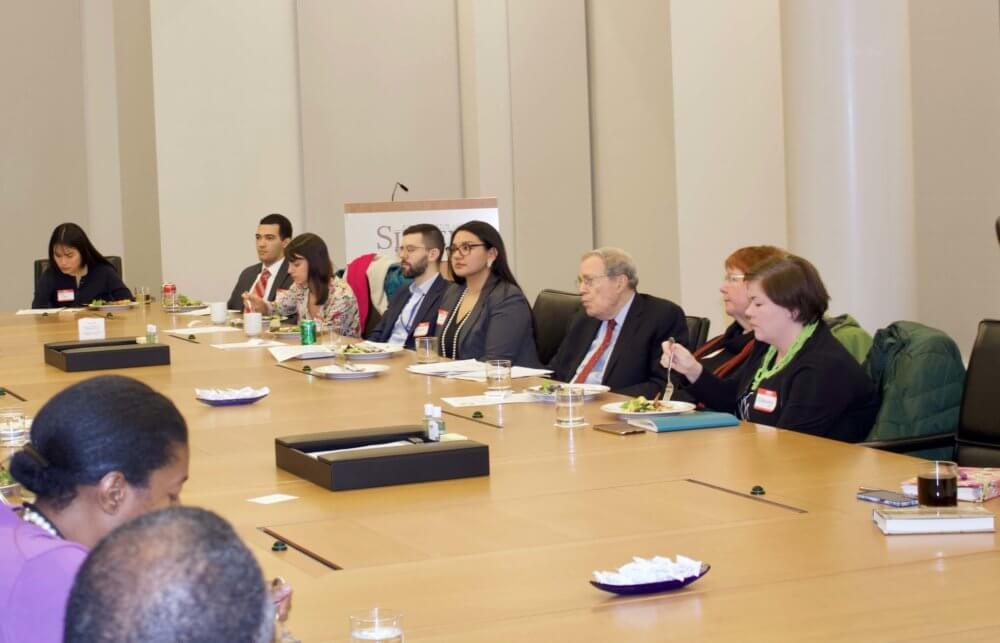
Dinner & Discussion with Peter Edelman (2018)
By Anne King
In his latest book, Georgetown Law’s Peter Edelman highlights several ways in which the government treats poverty like a criminal offense. At our recent Dinner and Discussion, Peter joined us to discuss that book, Not a Crime to Be Poor: The Criminalization of Poverty in America, and also offered advice on public-interest lawyering.
Over vegetarian fare, Peter and attendees covered the major trends: the school-to-prison pipeline; the cash bail system; drivers’ license suspensions that prevent people from getting to work; the rise in fines and fees where nonpayment leads to jail time; and chronic nuisance ordinances that penalize 911 callers and may spur evictions. (For more on these issues, see here, here, and here.)
Although these problems seem daunting, Peter noted that we have reduced poverty a great deal since the 1960s; this means that anti-poverty efforts can be effective. The last third of Not a Crime to be Poor, Peter explained, is about “the good stuff”: Community-based programs that are combating across the country. He also cited efforts by the D.C. Access to Justice Commission, which he chairs, to improve access to civil legal services here in Washington. (Our own board member Nancy Drane is the Commission’s executive director.)
Finally, for those interested in public-interest lawyering, Peter offered sage advice: If you have a career plan, be flexible. As for whether lawyers should lawyers focus on public policy or litigation, “The answer is both.” By representing individuals, lawyers learn about real-life problems that need policy fixes.
To illustrate his point, Peter told the story story of Vera Cheeks. Ms. Cheeks faced escalating fines and the threat of jail after she was ticketed for a minor traffic violation. With a lawyer’s help, she successfully challenged her own probation and also helped others avoid the same fate.
We were joined at Sidley Austin by a group of about twenty people—including lawyers at firms, government, and legal-services organizations, as well as law school faculty and staff and several self-professed Peter fans! And it was especially great to see some law students who took time out of their busy schedules and whom we can’t wait to see tackle problems like these.
Anne King (@annewarrenking) is a government lawyer and a member of our Board of Directors.






